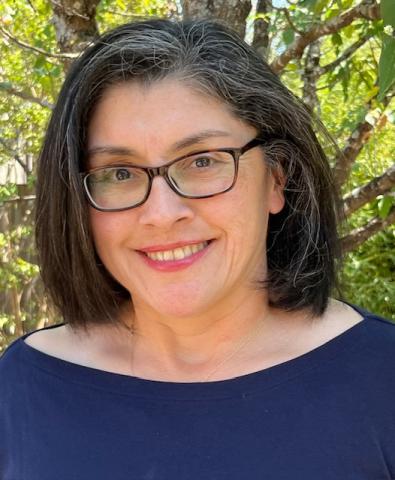
Laura Gómez-Horton, LCSW-S
Laura Gómez-Horton is a Licensed Clinical Social Worker and Board-Approved Supervisor through the Texas State Board of Social Work Examiners. She has been practicing in the Central Texas area for over 25 years. As manager of the Employee Assistance Program, Laura approaches services for the community and individuals through a person-centered lens working from a trauma-informed, Relational-Cultural model.
Laura has extensive experience providing bilingual (English and Spanish) services for individuals, children, families, groups, and communities in the areas of domestic violence, sexual assault, trauma, depression, anxiety, PTSD, immigration, parenting, identity, inter-generational issues, grief and loss, and life transitions. She has experience in counseling, case-management, university teaching, clinical and administrative supervision, training and consultation, group facilitation, non-profit work, and program development. She has also provided bilingual trainings on topics including, but not limited to, trauma-informed practice, de-mystifying mental health, self-regulation, self-care,parenting, resiliency, secondary trauma, burnout, leadership development, and work-life balance.
She is a trained Circle of Security (COS) Parent Educator and Trust-Based Relational Intervention Practitioner (TBRI). Both COS and TBRI are evidence-based, attachment-based, and trauma-informed programs targeted at supporting parents and caregivers in understanding the complex needs of their youth and deepening their connections. She integrates knowledge of the neurobiology of trauma and somatic practices as well as a variety of healing strategies through writing, creative arts, and movement.
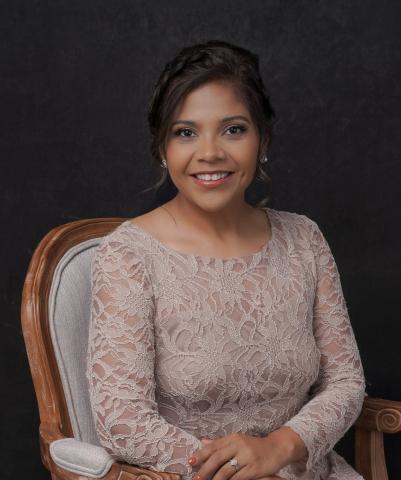
Mayra A. Hernandez, LCSW-S, SEP
Mayra A. Hernandez is a Licensed Clinical Social Worker, Board-Approved Supervisor, and Somatic Experiencing Practitioner with extensive experience in trauma-informed care, case management, relationship-centered therapy, and community-based support. Fluent in English and Spanish, Mayra’s work spans non-profit organizations, K–12 education systems, and clinical settings, She is dedicated to providing responsive and compassionate care for all.
Mayra’s clinical approach integrates a variety of therapeutic modalities, including Cognitive Behavioral Therapy, Narrative Therapy, Family Systems Therapy, Play Therapy, and Somatic Experiencing. She blends evidence-based practices with mindfulness and relationship centered interventions to support individuals and families navigating trauma, life transitions, mental health challenges, and barriers. Her trauma-responsive lens and relational approach emphasize safety, empowerment, and resilience.
Mayra has extensive experience supporting individuals impacted by intimate partner violence, sexual assault, human trafficking, anxiety, substance use, and those who wish to integrate spirituality into their counseling experience. Additionally, she has supported prenatal and postpartum mental health and has led district-wide initiatives supporting students and families within the k-12 school system. Her leadership includes facilitating support groups, mentoring professionals, overseeing case management services, and building partnerships across sectors to create lasting change in the community.
Mayra is deeply committed to creating healing spaces, building authentic, lasting relationships with individuals and communities, and remaining grounded in her own journey of personal and professional growth.
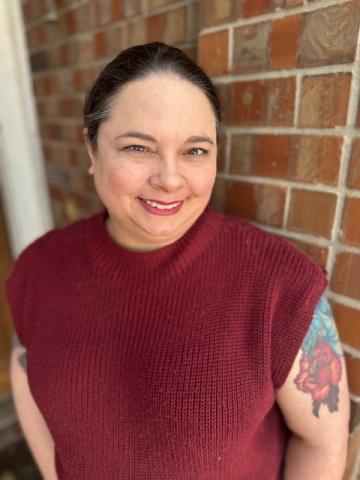
Jamie Justus, LCSW-S
Jamie has been a Social Worker for over 15 years. She has worked in agency settings such as a nursing home, court-appointed special advocates, rape crisis centers, a university counseling center, and private practice.
Jamie specializes in working with survivors of trauma and those who want to better manage their anxiety. She is a Hatha yoga teacher and is passionate about making yoga practices accessible to all bodies and minds.
In therapy sessions, Jamie enjoys delving into psychoeducation and helping clients to shift old stories that no longer serve them. She is honored to be a therapist, getting to be curious with people one session at a time.

Danica Morgan, LCSW
Danica Morgan (duh-NEEK-ah) is a Licensed Clinical Social Worker with experience serving various populations across various agency settings since 2011. Her expertise includes supporting active-duty military members, veterans, sworn and civilian law enforcement professionals, individuals experiencing chronic homelessness, young adults aging out of foster care, individuals with multi-ethnic backgrounds, victims and survivors of crime, K–12 students and their families, first-generation college students, and young professionals navigating new careers or transitions. She also has extensive experience assisting people with visible and invisible disabilities, mental and/or substance use disorders, including those seeking inpatient psychiatric care.
Her therapeutic approach is rooted in a strengths-based, culturally responsive perspective, where she translates complex psychological concepts into practical, personalized tools to promote overall well-being. She combines the science of interpersonal neurobiology and attachment theory with the spiritual depth of transpersonal and positive psychology, creating a safe space for emotional resilience and soulful self-exploration. Recently certified in EMDR, Danica incorporates trauma-informed care with cognitive-behavioral techniques and motivational interviewing via resilience first aid to foster meaningful and lasting growth and healing. By viewing each individual through a systemic and solution-focused framework, she assists clients in integrating clinical insights with their daily lives.
Danica offers presentations on topics such as emotional intelligence, growth mindset, communication, and workplace feedback skills building, micro-resilience strategies, and aligning core values for well-being.
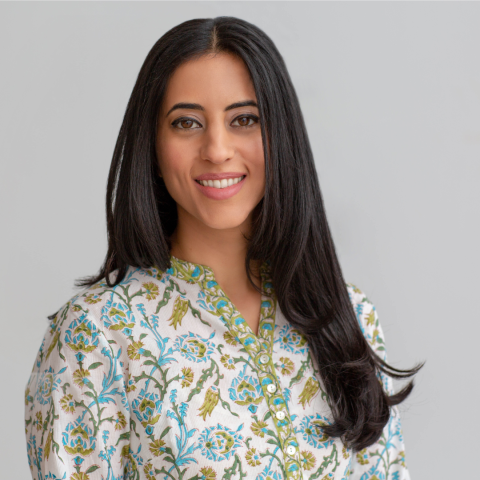
Geeti Shirazi Mahajan, LCSW-S, MPH, C-IAYT
Geeti has worked as a Licensed Clinical Social Worker and Yoga Therapist since 2012. Her clinical experience includes working at a psychiatric inpatient hospital, an intensive outpatient group setting, and an academic integrative medical setting. Geeti specializes in working with survivors of trauma and offers individual and group therapy at the EAP and in her private practice. Geeti is an embedded EAP counselor at UTHA/Dell Medical School.
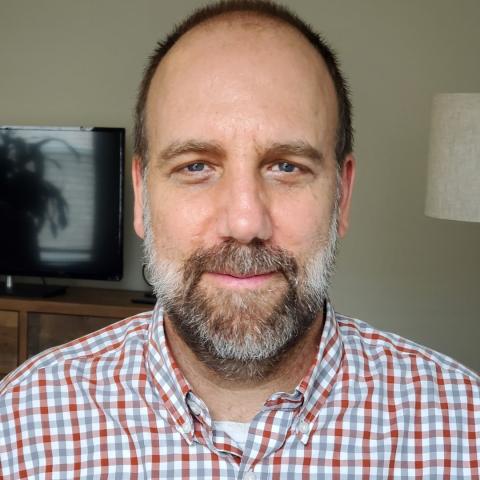
Jeff Stellmach, LCSW
Jeff has worked as a licensed clinical social worker in Texas since 1993. He has been a social worker in psychiatric hospitals, a case manager with political refugees, a counselor at outpatient mental health clinics, primary care clinics and nursing homes, and a counselor and treatment supervisor for adolescents in residential treatment. Jeff specializes in eldercare issues by assisting individuals making care decisions and finding community resources for loved ones. He provides training on stress management, responding to crisis situations, and appropriate language and conflict management at work.
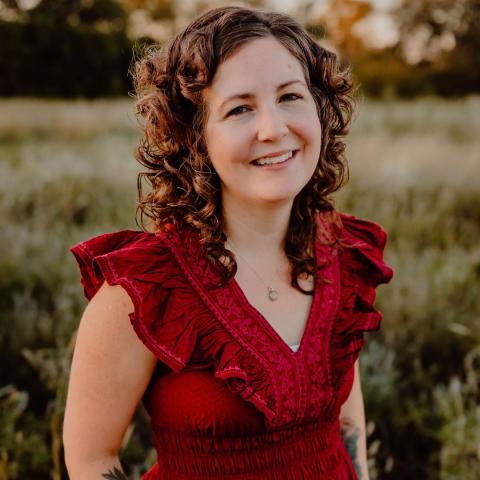
Amber Hunter-Crawford, LCSW-S
Amber is a licensed clinical social worker and board-approved supervisor with a heart-centered, relational approach to therapy. Grounded in the neurosciences of connection, she believes that at our core, we all need to be seen, heard, and understood. She helps clients slow down, cultivate compassionate awareness of their experiences, and build more fulfilling relationships—with themselves and others.
Amber’s clinical experience spans diverse settings, including managing a federally funded interpersonal violence prevention program for migrant farmworkers, counseling immigrants, refugees, and asylum seekers, supporting survivors as a bilingual therapist at a domestic violence and sexual assault resource center, and providing therapy in private practice.
She specializes in guiding managers and leaders to foster cultures of care in the workplace, supporting working parents, strengthening resilience, and using embodied approaches to heal from interpersonal violence and intergenerational trauma. Her advanced training includes interpersonal neurobiology, attachment theory, somatic therapies, and EMDR.
As the Assistant Director of HealthPoint at the Employee Assistance Program, Amber is dedicated to fostering a culture of care and well-being across the university. She serves as the liaison to Faculty Council, provides leadership as a Senior Trainer for Longhorn Listens: Suicide Prevention program, and hosts the Strengthening Relationships Presentation series.
